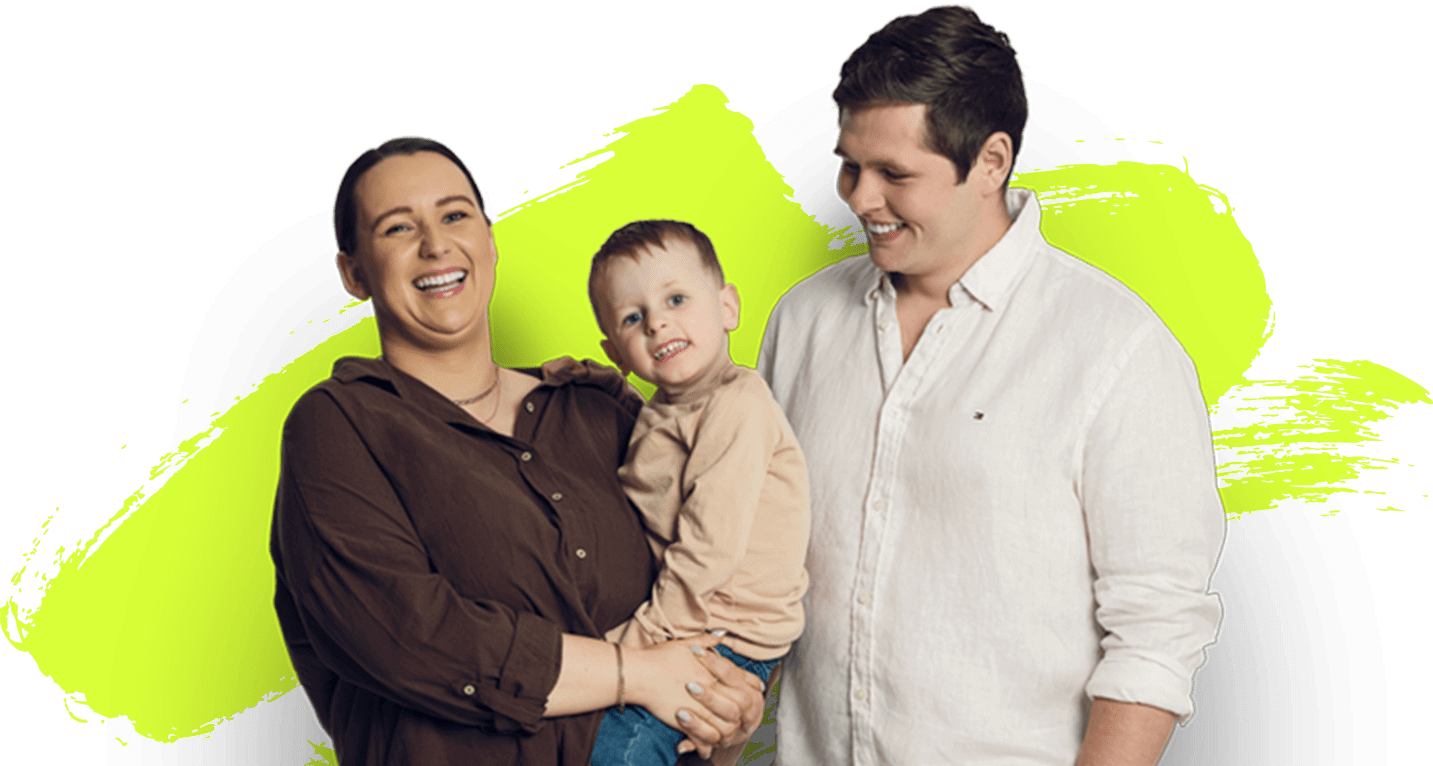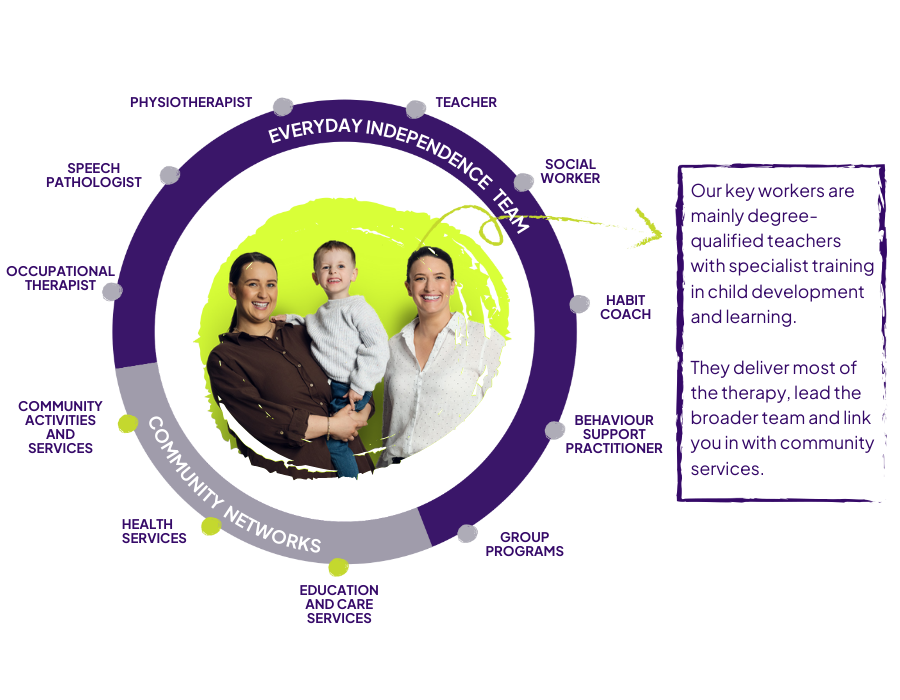We believe that the best early intervention programs in Pakenham are those that take a personalised, family-centered approach to support your child’s development across all areas of life, using a team approach. At Everyday Independence, our early intervention program is designed to help children aged 0–8 build the skills they need to thrive at home, in education, and in the community.
Our programs are based on the key worker model, which is recognised as best practice and is the NDIA’s preferred approach for supporting young children under the NDIS. This means one trusted professional, your key worker, delivers most of your child’s therapy, in the places they spend their time, while coordinating input from a team of therapists including speech pathologists, occupational therapists, physiotherapists, and behaviour support practitioners.
The best early intervention programs:
- Support the whole child, including communication, motor skills, play, self-care, and emotional development
- Empower families by providing strategies that can be used in everyday routines
- Focus on real-world outcomes, helping your child take part in everyday life more confidently
- Provide flexible support in places that matter most, at home, in childcare, at school, or in the community
Whether your child needs help with speech, mobility, behaviour, or preparing for school, we tailor the program to their individual needs and your family’s goals.







